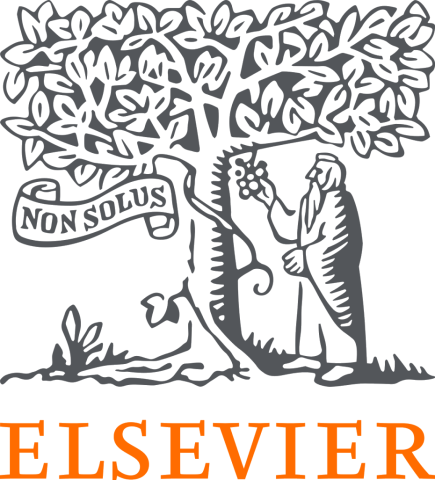
How knowledge-sharing is making Baja’s wine industry the ‘next Napa’
Diana Celaya Tentori discusses the huge benefits of knowledge-sharing in wine research that can be applied to every academic discipline
Research management
Sponsored by

Elsevier helps researchers and healthcare professionals advance science and improve health outcomes for the benefit of society.
You may also like
Popular resources
On some levels, universities have engaged in knowledge exchange throughout the history of higher education. In the Middle Ages, for example, universities had close relationships with the church and government – who were among their main supporters. But the importance of knowledge exchange, and the need to consciously do more of it, is something that received increased attention hundreds of years later during the Covid-19 pandemic, when it became necessary to move information and processes at speeds and scales we had never seen before. A perfect example is the speed of vaccine development, which was only made possible by the collaboration that occurred between industries and organisations, and between different departments that exist within those organisations.
Knowledge exchange is important to every academic discipline, but to discuss it in specific ways it is necessary to draw from our own fields and expertise. As the director of the Center for Wine Studies at CETYS University in Mexico, I can explain how the wine industry of the Baja California region in Mexico is a perfect example of the many ways that knowledge exchange enhances the organisations related to wine production in this area.
Different levels of knowledge exchange
First, what exactly is knowledge exchange? We can define it simply as the process of sharing and applying knowledge between academic researchers, industry professionals, government bodies and other stakeholders with the goal of mutually benefiting all of these groups as well as the public overall.
There are different levels of knowledge exchange, and all of them are beneficial. First is the individual level. For example, I come from an economics background and, as I’m a specialist, it’s easy for me to become limited by “blind spots” or “tunnel vision”. But everyone has different blind spots so, even just by talking to my peers within the same speciality, I can still see things I might not see by myself.
- The three key building blocks for a successful knowledge transfer partnership
- The secret to ‘levelling up’ is in cross-sector, community-based research
- What is the secret to leading a successful Knowledge Transfer Partnership (KTP)?
Next is the departmental level. As I’m an economist it’s inevitable I will bring an economist’s perspective when looking at the wine industry in my region and any challenges it might face. My colleagues in the business and marketing departments will inevitably bring a somewhat different perspective, even if some areas overlap. Additionally, professionals I know who work in engineering, chemistry, agricultural sciences, and tourism and hospitality will also have different perspectives and insights. And all of these can and should be leveraged wherever possible.
There is also the interorganisational level, where you’re collaborating with different organisations or sectors such as growers, wineries, restaurant owners, retailers, NGOs and government bodies. All of this can lead to new ways to approach and solve problems.
If we imagine these different levels existing on a vertical axis, there is a horizontal axis as well. This consists of knowledge sharing locally, across states/provinces and internationally. This is also important, and it’s this kind of knowledge sharing with other countries that has made possible the growth of the wine industry in Baja overall – as well as the growth of academic research of wine, specifically, in institutions such as our Center for Wine Studies here at CETYS. Our institution can then serve as a gateway for knowledge from around the world for the people in this region who are not able to go abroad.
How knowledge-sharing has played out
Now let’s look at some specific issues here that show the importance of knowledge sharing. Currently, one of our biggest research projects is putting together a systematic analysis and survey of all the topographical characteristics of the wine valleys here in Baja. The goal is to have a literal and figurative map of what we are producing, where we are producing it and the potentials that exist given the traits of the soil, water, climate and other factors of each area. Clearly, this is a project that cannot be done by those of us at the Center for Wine Studies alone. So we are working with the engineering and business administration departments at CETYS. The business administration department, for example, is conducting a census of all the wineries in this region, how many workers they have and related demographic information.
We are also working with organisations outside the university, such as the government, to acquire data that we share with our engineering department, which is putting together a website to catalogue all of this information. We’re also working with another organisation outside our university that is hosting this data. And, finally, we make all of this information available to the wine producers of our region.
Another example of the power of knowledge sharing comes in tackling a challenge that our region’s wine industry faces. Baja’s climate is very dry and prone to droughts, which presents obvious challenges for winemaking. But thanks to knowledge sharing we do not have to start from scratch or reinvent the wheel on this. Instead, we can learn from what other regions have done. We have worked with scientists and laboratories in Napa Valley in the US, for example, which is a region that also faces some drought issues, and they have openly shared their knowledge with us. And although wine regions in California also face drought-related challenges, certain wine regions in Australia have almost the exact same climate-related challenges as Baja does, and they have already been facing them for many years before us. Thus we have sought to collaborate with the wine industry there as well to learn and apply their best practices, starting from the grape fields all the way to the wineries.
In some situations, it is natural to wonder what you can offer back to an organisation that is openly sharing its knowledge with you, but there is usually something, even if it’s not always obvious at first. For example, with the US and Australian organisations that are sharing their knowledge with us, it’s an opportunity for them to test if what they do in their own regions can work here in Baja. This can be valuable knowledge, too, because with climate change causing unpredictable shifts in weather and rainfall patterns, regions might need to evolve their current practices, and these kinds of collaborations allow them to test their methods in a real-world laboratory setting.
Although I have focused on my own field of wine research, there are more benefits to knowledge exchange for every field than we can cover in just one article. And there are also many risks in keeping knowledge isolated. In a time of global challenges it takes global knowledge to find solutions. Students know this, too, and increasingly want to study at institutions where they can tap into such global knowledge. As such, it should be a priority for every university administrator and department head to actively promote as much knowledge exchange at their universities as possible.
Diana Celaya Tentori is dean of the Center for Wine and Vine Studies at CETYS University in Ensenada, Mexico.
If you would like advice and insight from academics and university staff delivered direct to your inbox each week, sign up for the Campus newsletter.
Research management
Sponsored by

.png?itok=21pMgm3t)

.jpg?itok=dMN2AqkO)
